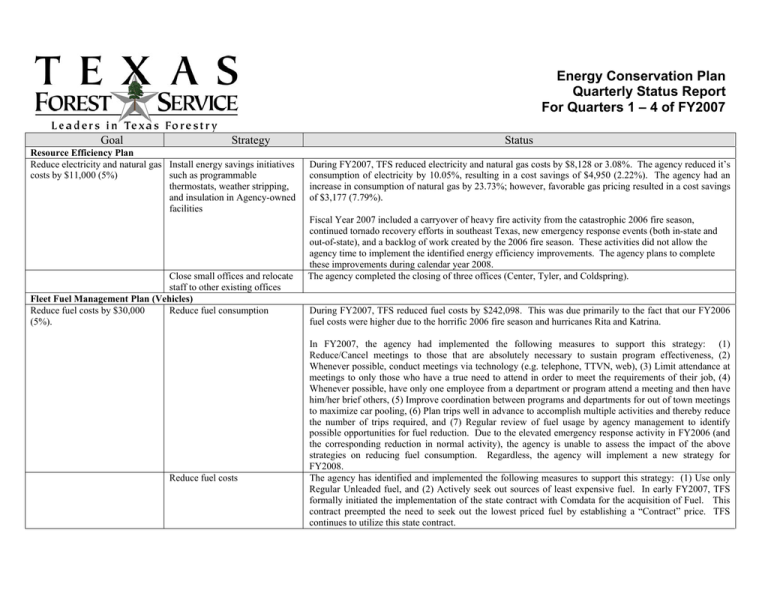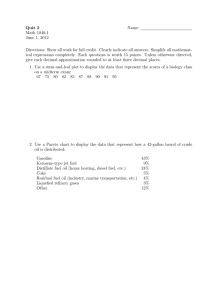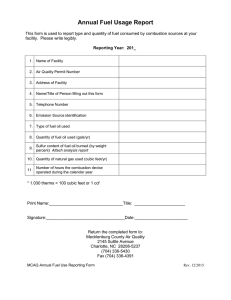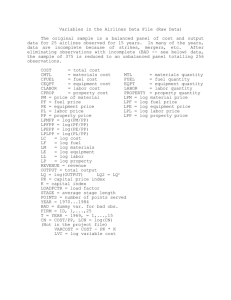Energy Conservation Plan Quarterly Status Report
advertisement

Energy Conservation Plan Quarterly Status Report For Quarters 1 – 4 of FY2007 Goal Strategy Resource Efficiency Plan Reduce electricity and natural gas Install energy savings initiatives costs by $11,000 (5%) such as programmable thermostats, weather stripping, and insulation in Agency-owned facilities Close small offices and relocate staff to other existing offices Fleet Fuel Management Plan (Vehicles) Reduce fuel costs by $30,000 Reduce fuel consumption (5%). Reduce fuel costs Status During FY2007, TFS reduced electricity and natural gas costs by $8,128 or 3.08%. The agency reduced it’s consumption of electricity by 10.05%, resulting in a cost savings of $4,950 (2.22%). The agency had an increase in consumption of natural gas by 23.73%; however, favorable gas pricing resulted in a cost savings of $3,177 (7.79%). Fiscal Year 2007 included a carryover of heavy fire activity from the catastrophic 2006 fire season, continued tornado recovery efforts in southeast Texas, new emergency response events (both in-state and out-of-state), and a backlog of work created by the 2006 fire season. These activities did not allow the agency time to implement the identified energy efficiency improvements. The agency plans to complete these improvements during calendar year 2008. The agency completed the closing of three offices (Center, Tyler, and Coldspring). During FY2007, TFS reduced fuel costs by $242,098. This was due primarily to the fact that our FY2006 fuel costs were higher due to the horrific 2006 fire season and hurricanes Rita and Katrina. In FY2007, the agency had implemented the following measures to support this strategy: (1) Reduce/Cancel meetings to those that are absolutely necessary to sustain program effectiveness, (2) Whenever possible, conduct meetings via technology (e.g. telephone, TTVN, web), (3) Limit attendance at meetings to only those who have a true need to attend in order to meet the requirements of their job, (4) Whenever possible, have only one employee from a department or program attend a meeting and then have him/her brief others, (5) Improve coordination between programs and departments for out of town meetings to maximize car pooling, (6) Plan trips well in advance to accomplish multiple activities and thereby reduce the number of trips required, and (7) Regular review of fuel usage by agency management to identify possible opportunities for fuel reduction. Due to the elevated emergency response activity in FY2006 (and the corresponding reduction in normal activity), the agency is unable to assess the impact of the above strategies on reducing fuel consumption. Regardless, the agency will implement a new strategy for FY2008. The agency has identified and implemented the following measures to support this strategy: (1) Use only Regular Unleaded fuel, and (2) Actively seek out sources of least expensive fuel. In early FY2007, TFS formally initiated the implementation of the state contract with Comdata for the acquisition of Fuel. This contract preempted the need to seek out the lowest priced fuel by establishing a “Contract” price. TFS continues to utilize this state contract.




